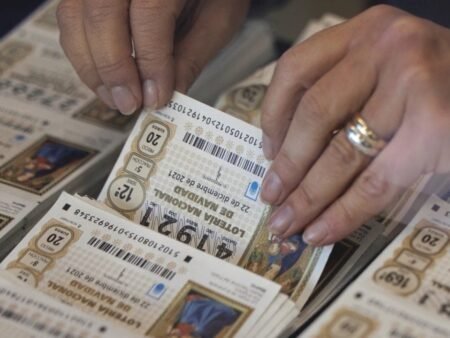In a notable policy shift, two downtown Las Vegas casinos—Binion’s and Four Queens—are breaking from tradition by letting their dealers keep their individual tips, departing from the common practice of tip pooling. The change is aimed at increasing earnings for dealers and attracting more staff during peak casino hours.
Under the new system, which has been in place at Binion’s for about three months, dealers are permitted to keep the tips they receive from their own tables, rather than sharing them in a collective pool with other dealers. Four Queens, Binion’s sister property, will follow suit and implement the same policy starting October 28. Both casinos are operated by TLC Enterprises.
Glenn Casale, Director of Casino Operations at Binion’s and Four Queens, explained the rationale behind the change. “We found that dealers were likely to earn more by keeping their own tips. The new policy has already had a positive impact on staffing, especially during the busy swing shifts,” Casale said, according to the Las Vegas Review-Journal.
Impact on Staffing and Dealer Earnings
The shift in policy has had mixed reactions from staff, with around 10% of the workforce at Binion’s opting to leave due to their preference for tip pooling. Despite this, the change has proven successful for the casinos. By increasing dealers’ potential earnings, management was able to fully staff the busiest shifts, an area where they had previously been operating 30 to 40 percent below optimal staffing levels.
Casale provided some insight into the benefits of the new system, noting, “Dealers who used to average $50 to $60 per day are now making closer to $150 during swing shifts.” The substantial increase in daily earnings has attracted dealers from other casinos, helping Binion’s and Four Queens to stabilize staffing levels across all shifts.
Implementing the new tip policy required significant planning and preparation. Dealers underwent extensive training to ensure they could work across all games offered at the casino, as it is now essential for them to rotate between different games every 30 minutes. This game rotation policy ensures no single dealer remains at one table for an extended period, which can help mitigate the effects of tables with fewer tips, such as Pai Gow, which is known to generate lower tip amounts. “No dealer gets stuck at one game for too long. If a game isn’t performing well or isn’t drawing in a lot of tips, they won’t be stuck there all day,” Casale added.
Advantages and Drawbacks of Tip Pooling
In Las Vegas, tip pooling is widely used, particularly because of an IRS program that encourages casinos and their staff to maintain consistent tip rates across different types of tipped positions. Under the new policy, however, dealers at Binion’s and Four Queens must now report their individual tips at the end of each shift, which will be added to their payroll for tax purposes.
While some dealers prefer the individual tip-keeping policy for its potential to increase earnings, others, like Wynn casino dealer and UAW Local 3555 union member Kanie Kastroll, have highlighted the benefits of tip pooling. According to Kastroll, pooling tips can reduce the risks of favoritism and mitigate fluctuations in earnings. For example, dealers assigned to higher-limit tables may consistently earn more, while those on slower or less popular tables may struggle to match their colleagues’ income.
“Tip pooling can level the playing field,” Kastroll explained. “Even if you’re a standout dealer with great skills and a fun personality, there will always be variability in tips. Pooling can help make earnings less volatile.”










